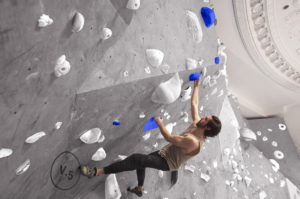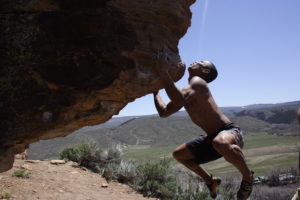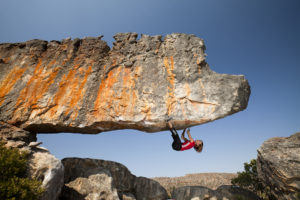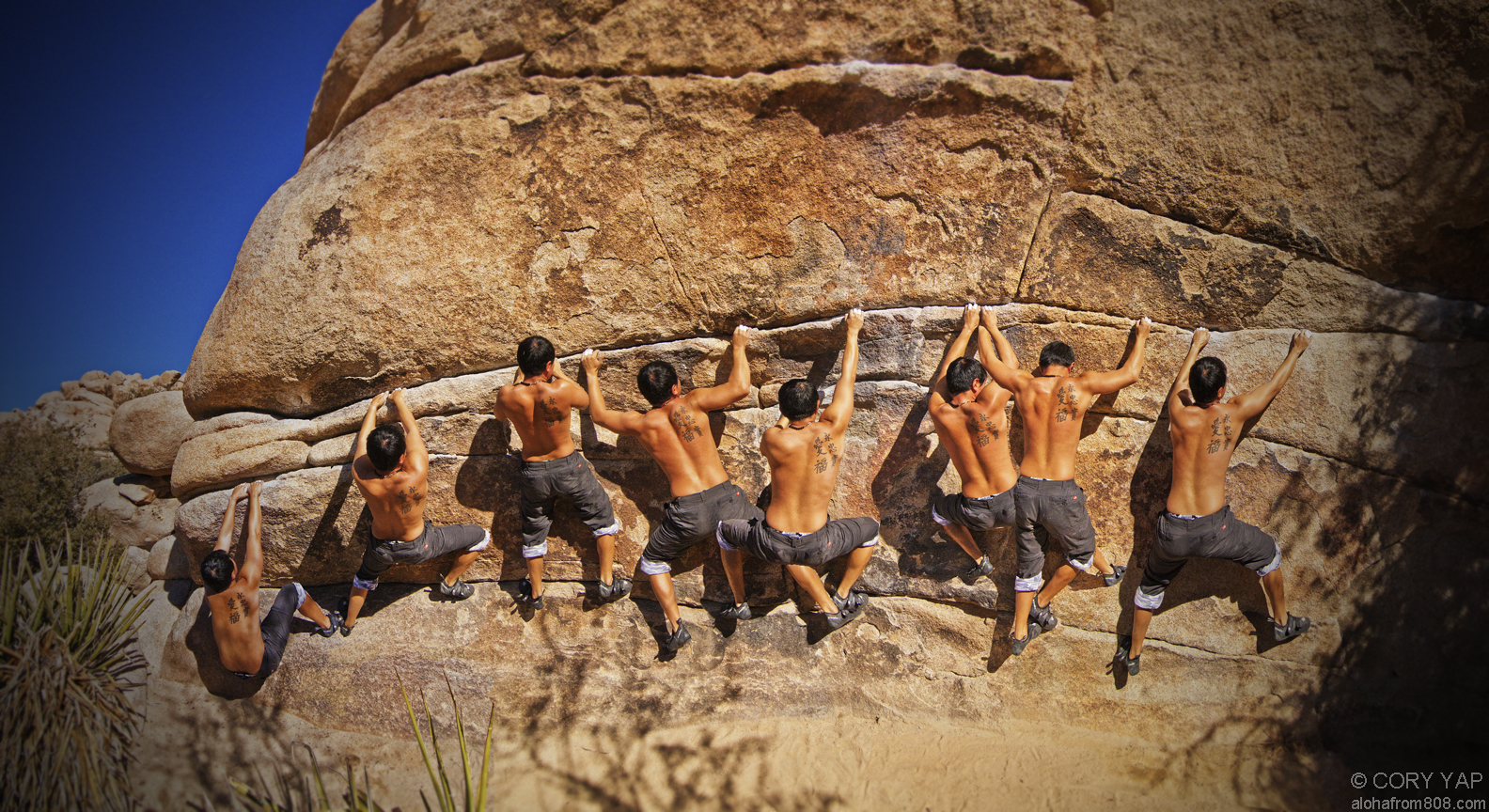While you can easily take any sport and apply these same principals, I like the concepts presented in rock climbing the most. Rock climbing has some unique aspects similar to business, as it’s not a true team sport; it is a communal sport. More so, it involves a degree of bravery and risk that other sports don’t entail. It’s also my favorite!
Strength & Power

To be a good rock climber, even a mediocre rock climber, you must have strength. For most businesses, this presents itself as mental strength or knowledge. In rock climbing, it’s brute muscular conditioning.
When beginners start out, they think the strength will come organically, but they soon discover this only leads to a quick plateau. You see, to be good or even great at something, you need to have purposeful, strategic conditioning. You need to work your muscles in each area and develop a system for executing your growth.
This involves identifying strengths and weaknesses, areas of most value, cross-disciplinary training, and your execution cadence. Work an area too hard, and you burn out that area and neglect other areas. Don’t put in enough effort, the little efforts you make are virtually in vain.
Coordination & Focus

Rock climbing is a dangerous sport. It takes extreme focus and strategic coordination. Most people think it’s all upper body strength, but it’s a total body effort. The smallest shift of foot placement or leaning slightly to the side will be the difference in successfully completing a route or falling to the earth.
Rock climbers coordinate each movement throughout the entire body, including breathing patterns. They consider the placement of their hands, their feet, the angle of their back, the length of their torso, the direction of their hips. The more coordinated the efforts, the more efficiently and quickly they achieve their goals.
Balance

A critical aspect of both strength and coordination is balance. Rock climbers are perpetually aware of their center of gravity. When the movements maintain balance, each movement feels natural, fluid, and efficiently expels energy. Pull too far away from the wall, gravity starts to pull you down, straining every movement until you become slow and tired. Fling yourself to the next move on power alone; again you will become slow and tired.
Keeping balance as part of your focus and strategy, you will remain energized and fast all the way to the top.
Problem Solving

No matter how good you are at controlling your own movements, your mind must still decode the puzzle each climb presents.
The decoding process involves trying different approaches and accessing the effectiveness of each move. Most importantly, it involves not giving up after failure. Every failure is a lesson learned.
With each new piece of fail-data, comes new insights for reassessing the problem. Sometimes what looks to be an obvious right-hand move is actually your left-hand crossing over. Other times you realize it is not a hand hold at all but rather a foot hook. With each progression of difficulty comes more unusual moves.
As you progress, you begin to gain expertise and understand the possibilities you are capable of.
Support

While there are many business insights from sports, I like the environment of rock climbing the most. Groups of rock climbers support each other and coach each other. They are encouraging, nurturing, and perpetually problem-solving cohesively. From the best climbers to the beginners, there is no ego, no judgment, no harboring info so you stay the best. It is a true coaching environment.
But! Ultimately the sport highlights that you are responsible for your performance. Sure others can influence you. Maybe someone accidentally invades your space so you can’t make your next move. Maybe someone gives you great advice.
But the sport isn’t like other sports. It is obvious that you are responsible for you in every way. If you get hurt, it’s on you. If you fall, it’s on you. If you succeed, it’s on you.
Every time you get on the wall, you are betting on yourself. No 80/20 rule here!
Bravery

Melissa LeNeve warming up on The Rhino 7b in Rocklands, South Africa
Bravery is one of the more rare characteristics and easily one everyone struggles with daily. We all know great risk can yield great success and great failure. Typically, the higher the risk, the higher the potential in either direction.
This concept is true in business and couldn’t be more true in rock climbing. The best climbs have incredible risks; a straight assault to life and limb. Without risk, it is impossible to progress. Each move requires you to overcome the fear. Rock climbers will challenge themselves and specifically move in ways that frighten them until their skill confidence grows. They know that practice will give them confidence and that confidence will overcome the fear.
The key to this conversation: purposeful actions.

